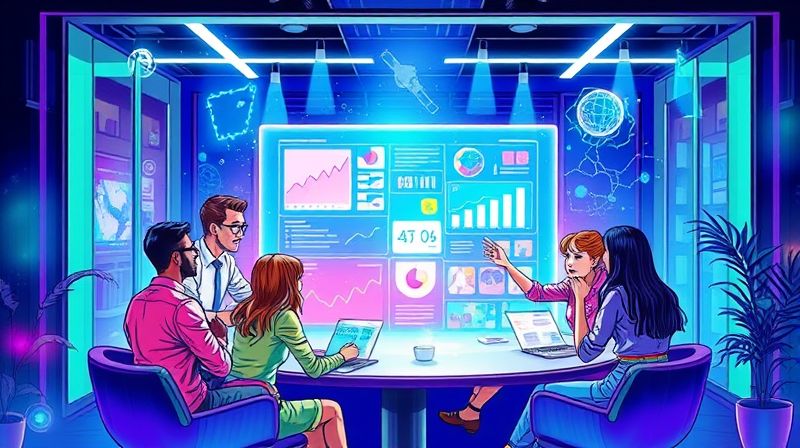
The emergence of generative AI is reshaping how business software is built and adopted. Platforms that once served broad markets are fragmenting into specialized, vertical solutions designed to meet the unique needs of distinct industries. As organizations seek deeper insights and tailored workflows, the appeal of niche B2B platforms powered by AI has never been stronger.
In this article, we dive into the factors fueling this evolution and explore how entrepreneurs and enterprises can harness generative AI to create compelling, domain-specific offerings that drive growth and differentiation.
The generative AI sector is on a remarkable trajectory, with estimates forecasting a market size between $50 billion and $110 billion by 2025. Forecasts from McKinsey, Deloitte, and Gartner converge on a near-$80 billion figure, while Statista projects around $66.9 billion.
Compound annual growth rates range from 35% to 45%, and some analyses predict the market will exceed $1 trillion by 2034. The U.S. leads the charge, capturing over 41% of global revenue in 2024 and projecting a staggering $302.3 billion valuation by 2034.
Several key trends are accelerating adoption across industries. Automation and efficiency gains lead the charge, as platforms integrate AI to produce content, analyze data, and streamline workflows. Advances in large language models and cloud computing have made it practical to embed generative capabilities into existing systems.
Simultaneously, venture capital and corporate investment in AI startups have surged, enabling rapid experimentation and specialized product development. The combined momentum of technology and funding is creating fertile ground for new B2B entrants.
While generalist AI tools serve millions, they often miss critical nuances required in specialized fields. Niche B2B platforms can capitalize on fine-tuning models to understand specific terminology, regulatory requirements, and unique data structures.
By embedding intelligence directly into the user journey, these platforms can deliver predictive insights, automated document drafts, and personalized recommendations—features that general tools struggle to match out of the box.
Despite the promise, niche platforms face obstacles. Building and maintaining domain expertise within AI models requires access to proprietary data and ongoing fine-tuning. Ensuring accuracy and instilling trust is critical in high-stakes verticals like finance, healthcare, and legal services.
Furthermore, integration with legacy systems can be complex and costly. Organizations must weigh initial investment against long-term ROI, factoring in model training costs, cloud infrastructure fees, and compliance overhead.
Several startups and established players are already demonstrating the power of niche approaches. In sales intelligence, platforms like Gong and Chorus AI use generative features to craft outreach scripts and analyze call transcripts, boosting conversion rates.
In e-commerce, Amazon’s Enhance My Listing tool leverages AI to optimize product descriptions and imagery. Similarly, specialized survey platforms generate and interpret sector-specific market research in real time, providing actionable insights to decision-makers.
These examples highlight how focused intelligence drives user engagement, retention, and value creation in specialized workflows.
Below is a snapshot of key market metrics that underscore the rapid evolution of generative AI and its potential to empower niche B2B platforms.
Entrepreneurs and product leaders should adopt a multi-pronged approach when launching niche AI-driven platforms. First, collaborate with domain experts to curate high-quality training data and define clear use cases.
Second, invest in robust API architectures and modular designs to ensure seamless B2B workflow integration and flexibility for future expansions. Third, implement transparent reporting mechanisms to build user trust, especially in regulated environments.
Finally, focus on creating compelling onboarding experiences that highlight quick wins and demonstrable ROI to drive adoption and retention.
As AI capabilities continue to advance, we can expect further fragmentation of the B2B software landscape. Industry-specific models, powered by real-time data streams and advanced prompt engineering, will enable even deeper personalization and automation.
By 2028, enterprises could be managing over a billion AI-infused applications, each tailored to niche requirements. Success will favor those platforms that combine deep domain knowledge, agile development, and a relentless focus on user outcomes.
Generative AI is not just a technology wave—it is the catalyst for a new era of specialized, intelligent B2B platforms designed to solve precise challenges and unlock unprecedented value.
References













